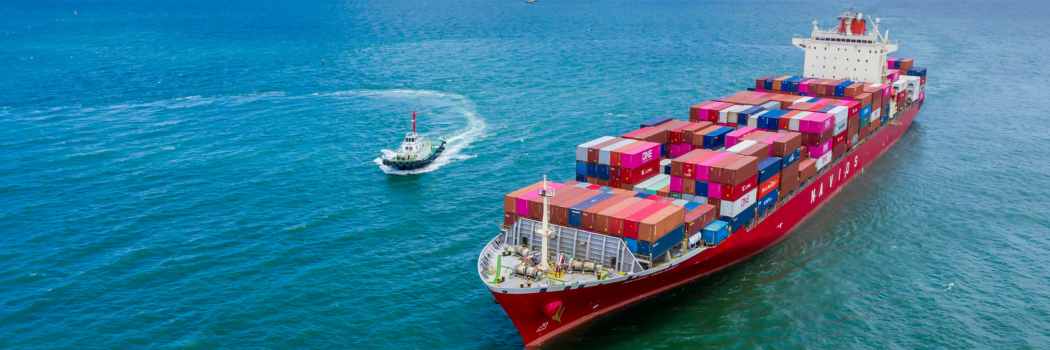The Bahamas (Northern Region)
Turks and Caicos
Amsterdam
Cyprus
Cayman Islands
Jamaica
Barbados
British Virgin Islands

April 08 2024
The Covid pandemic led to a flood of cases raising some kind of force majeure defence as businesses grappled with the ever-changing commercial landscape. More recently the geopolitical situation has led to a flurry of cases worldwide about the interpretation of force majeure clauses. Here we look at an English High Court (Commercial) decision arising out of the impact Ukrainian war-related trade sanctions against Russia had on a contract for the supply of crude oil. As a decision of the English High Court the reasoning of the judges is important because the case will have highly persuasive authority here in the Bahamas and elsewhere. The case is also notable because of the way the court clarified the “ownership and control” test under the UK sanctions regime. In this article however we’ll mostly focus on what the decision tells us about the interpretation of force majeure clauses in commercial contracts, particularly shipping contracts.
You can get in touch with our team directly on 1-242-352-6110 and 1-242-352-6112. Alternatively, you can always contact us online.
Litasco v Der Mond (2023)
Litasco is an oil trading company (owned by a Russian oil company). In 2021 it agreed to sell Der Mond Oil, a Senagalese corporation, 950,000 barrels of Nigerian crude oil. The cargo was delivered and Der Mond made two substantial partial payments under the terms of the contract. After that it stopped making payments. Following negotiations the parties agreed a revised payment plan and signed a Deed of Payment in January 2022. While some payments were made under this new arrangement, by March 2022 payments had again stalled and Litasco issued proceedings to enforce the outstanding debt (which amounted to some Euro 44 million).
By way of a defence Der Mond argued that the original contract with Litasco contained force majeure provisions and conditions about compliance with any applicable trade sanctions. Against the backdrop of Russia’s invasion of Ukraine in February 2022, Der Mond argued, these provisions had kicked in: payment under the contract had to be made through the international banking system and no European clearing bank was willing to make payments to Litasco because of concerns about the evolving anti-Russian sanctions regime.
(Remember Der Mond was wholly owned by a Russian company).
Der Mond stated that no fewer than five African banks with whom it had established relations had refused to facilitate the payments because of concerns that they could fall foul of the sanctions imposed against Russia if the payments were allowed to proceed.
The force majeure clause stated:
If by reason of ‘force majeure’, which for the purpose of this Agreement shall mean any cause beyond the reasonable control of the affected Party… either Party is delayed or hindered or prevented from complying with its obligations under this Agreement, the affected Party will immediately give notice to the other Party stating:
and
On trade sanctions the agreement also stated that
Each party understands that the performance of the Parties’ respective obligations arising out of the Agreement shall be in compliance with any United Nations Resolutions or any Regulations which have the force of law in Switzerland, the EU, the United States of America, the United Kingdom and/or the country or countries in which the Oil may be loaded, delivered
After a close analysis of the evidence and how payment under the contract was impacted by these provisions the court rejected the claims of the defendant and awarded Litasco the summary judgment it sought.
In essence the court found that international sanctions against Russia and the impact they had had on the international banking system was not the reason for Der Mond’s failure to meet its contractual obligations of payment. The reality of the situation was that the Senegalese company simply did not have sufficient foreign currency to make the payments. Yes, the Russian Ukraine war may have slowed down the amount of foreign currency available to the defendant. But it was too much of a leap to argue that the war and consequent sanctions had hindered their ability to pay to such an extent that the force majeure provisions could prevail.
Comment
It’s worth pointing out the care the court took to distinguish between between force majeure clauses which are engaged when the force majeure event completely prevents compliance with contractual obligations (i.e. it makes performance impossible) and force majeure clauses that kick in simply because performance is hindered – or made more difficult. The judge stated that the case of a defendant who seeks to rely on a force majeure event that hinders but doesn’t prevent performance must aways be ‘approached with particular circumspection’.
Contact Us
For advice from our maritime and shipping lawyers, please feel free to reach out to us at ParrisWhittaker for an initial, no-obligation discussion.
CLOSE X
